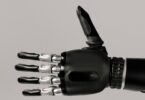An artificial intelligence platform developed by scientists from the University of Campinas in Brazil, can diagnose various diseases with a high index of accuracy, including Zika.
It is a method that combines the technology of mass spectrometry, which identifies tens of thousands of molecules present in the blood serum, with an artificial intelligence algorithm capable of detecting patterns associated with diseases of both viral, bacterial, fungal and even genetic origin.
Zika virus infection was used as a model to develop the platform and demonstrate that in that case the precision diagnosed exceeds 95%. One of the great advantages is that the method does not lose sensitivity even when the virus experiences mutations.
Another favorable point, according to the scientist, was the ability to detect positive cases of Zika even when blood serum analysis was carried out 30 days after the beginning of the infection, that is, when the acute stage of the disease already It had happened. No currently available diagnostic kit has the sensitivity to detect Zika virus infection after the acute phase.
All the extracted samples were analyzed in the mass spectrometer, an apparatus that functions as a kind of molecular scale, separating the molecules that enter there according to their mass.
In theory, any laboratory equipped with a mass spectrometer would have the potential to adopt the new diagnostic platform developed at Unicamp. This type of device is already used as part of the routine in performing tests such as measuring the level of vitamin D and in the heel test that is performed on newborns for the detection of metabolic diseases.
These and other innovations are now possible in Pharmamedic.








